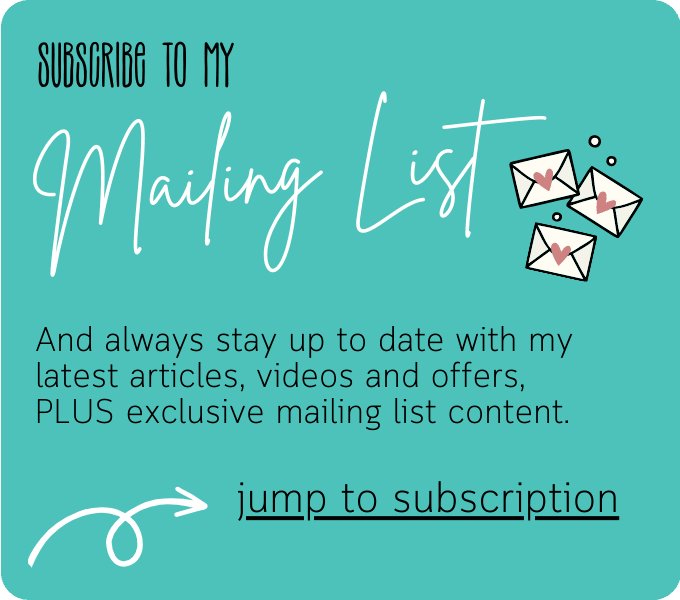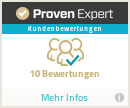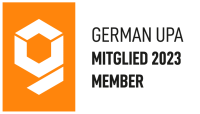Beyond Degrees: Advancing in UX Design Without a Formal Education
19. Juli 2023 2023-07-19 10:04Beyond Degrees: Advancing in UX Design Without a Formal Education
In the ever-evolving world of UX design, there is a common belief that formal education is necessary for career advancement. However, this perception is being challenged as more and more designers prove that success knows no boundaries. This article will explore the possibilities, share inspiring stories, and provide valuable insights for those passionate about advancing in UX design without a formal education.
The landscape of UX design is rapidly transforming, driven by technological advancements and changing user expectations. With the demand for skilled UX designers rising, it’s essential to recognise that formal education is not the only pathway to success. Many designers have forged unique journeys, leveraging alternative paths and unconventional learning experiences to thrive in the field.
Throughout this article, I will delve into my success story as a designer without a formal education and explore the power of practical experience, alternative learning resources, and the importance of building a personalised learning journey. By understanding these aspects, you can unlock your potential and navigate your individual path in the exciting realm of UX design.
Join me on this enlightening journey as I break the myth that formal education is a prerequisite for advancing in UX design. Let’s challenge the status quo, embrace alternative routes, and empower ourselves to create meaningful user experiences.
The Evolving Landscape of UX Design
The field of UX design has undergone significant transformations over the years. It is essential to recognise that formal education for UX designers is a relatively new development. When I first started as a UX practitioner, there were limited opportunities for structured education in this field.
However, the landscape has evolved, and today, we have many educational options available. Despite this, it’s crucial to understand that formal education is not a prerequisite for success in UX design.
With the advent of the digital age and the increasing influence of technology in our daily lives, the demand for skilled UX designers has surged. Organisations across industries now recognise the importance of delivering exceptional user experiences to stay competitive. As a result, the field has expanded, providing more avenues for aspiring UX designers to make their mark.
However, it is essential to differentiate between formal education and practical experience. While formal education can provide a foundation of theoretical knowledge, practical experience is equally, if not more, valuable in the realm of UX design. I myself have developed my skills through hands-on work, experimentation, and real-world projects rather than relying on formal education.
The fast-paced nature of the field demands adaptability and a continuous learning mindset. The ability to keep up with emerging technologies, evolving user behaviours, and industry trends is crucial for success. The need for constant growth and staying at the forefront of UX design has fueled the emergence of alternative learning resources that empower designers to chart their educational journey.
Success Stories of UX Designers without a Formal Education
Every success story begins with a passionate individual who defies conventional norms and blazes their trail. Meet me, a UX designer who has achieved remarkable heights without a formal education in the field. My journey showcases the power of practical experience and the resilience to navigate through various career transitions.
I started my career in the digital industry as a full-stack developer, honing my technical skills and gaining a deep understanding of software development. However, my curiosity and fascination with user experience led me to explore the world of UX design. Without a formal education in the field, I embarked on a journey to acquire the necessary knowledge and skills.
I transitioned to UX design in a company I worked for as a developer. This company started to embrace product management and UX. I worked diligently, contributing my expertise and passion to the projects I was involved in. However, as fate would have it, the company decided to discard their product management and UX initiatives after only one and a half years.
Undeterred, I embraced the challenges and embarked on a new path as a UX freelancer. This decision allowed me to gain valuable experience working with various organisations across different industries. As a freelancer, I had the opportunity to collaborate with diverse teams, tackle unique design problems, and deliver exceptional user experiences.
Throughout my freelancing journey, I continued to refine my skills, staying updated with the latest UX design trends, methodologies, and tools. I took the initiative to attend industry conferences, participate in webinars, and actively contribute to online UX communities. This continuous learning mindset enabled me to evolve as a UX designer and deliver value to my clients.
Today, I stand as a testament to the fact that formal education is only one of the pathways to success in UX design. My story showcases the importance of practical experience, adaptability, and perseverance in overcoming obstacles and thriving in the field.
As you embark on your journey in UX design, remember that success is not limited by educational credentials. Embrace the opportunities that practical experience and self-learning provide. Learn from my story and allow it to inspire you as you carve your unique path to success in the captivating world of UX design.
The Power of Practical Experience
There is a saying that „experience is the best teacher,“ which holds true for my journey and countless other successful UX designers. Practical experience plays a vital role in shaping skills, building confidence, and gaining a deep understanding of the intricacies of user-centred design.
As I transitioned to UX design, I embraced the power of practical experience to enhance my skills and make an impact in the field. Working as a full-stack developer provided me with a solid technical foundation, but it was through hands-on UX projects that I truly honed my craft.
By applying my knowledge and skills in real-world scenarios, I gained insights into the nuances of user behaviour, usability challenges, and the importance of human-centric design. I learned to navigate the complexities of stakeholder expectations while keeping the end user’s needs at the forefront.
One of the pivotal moments in my journey was when I joined a company that fully embraced product management and UX. During this time, I had the opportunity to collaborate closely with multidisciplinary teams, conduct user research, create wireframes, and iterate on designs based on user feedback. This hands-on experience allowed me to witness firsthand the impact of my work on the overall user experience and business success.
Each project undertaken as a freelancer presented me with unique design problems, user personas, and stakeholders. This diversity of experiences allowed me to refine my UX design skills, expand my toolkit, and develop an intuitive understanding of the intricate balance between business goals and user needs.
The power of practical experience lies in the technical skills acquired and the ability to think critically, make informed design decisions, and effectively communicate with stakeholders. It fosters a deep empathy for users and instils a mindset of continuous improvement.
As you embark on your journey in UX design, seek opportunities to gain practical experience. Consider working on personal projects, volunteering for non-profit organisations, or collaborating with others in the field. Each experience, no matter how small, will contribute to your growth and shape your unique perspective as a UX designer.
Alternative Learning Resources
In the digital age, education has expanded far beyond traditional classrooms. As an aspiring UX designer, you have many alternative learning resources at your fingertips. These resources provide valuable knowledge, practical skills, and networking opportunities, empowering you to thrive in UX design.
- Online Courses: Online courses have become a popular avenue for gaining in-depth knowledge and practical skills in UX design. Reputable platforms offer a wide range of courses taught by industry experts. Whether you’re a beginner or an experienced designer looking to specialise in a specific area, online courses provide flexibility and the opportunity to learn at your own pace.
- Webinars and Workshops: Attending webinars and workshops focused on UX design can be an excellent way to stay updated with industry trends, gain expert insights, and connect with like-minded professionals. These events often offer interactive sessions, Q&A opportunities, and networking possibilities, allowing you to expand your knowledge while building valuable relationships.
- Books and Publications: Books continue to be a valuable source of knowledge and inspiration for UX designers. From foundational UX design principles to advanced topics, there are numerous books available that can deepen your understanding of the discipline. Additionally, stay current with the latest publications, articles, and research papers in UX design to explore emerging concepts and innovative approaches.
- Online Communities and Forums: Engaging with online communities and forums dedicated to UX design can be invaluable for your growth. Platforms like UX Stack Exchange, UX Mastery, and Dribbble offer spaces to connect with professionals, seek advice, share experiences, and learn from others in the field. Active participation in these communities can expand your network and expose you to diverse perspectives.
- Mentorship and Networking: Seeking mentorship and networking opportunities can provide invaluable guidance and support throughout your UX design journey. Connect with experienced UX designers who can offer insights, share their experiences, and provide constructive feedback. Attend industry events, join local UX meetups, and engage in conversations with professionals to expand your network and gain valuable connections.
Remember, the power of alternative learning resources lies in your proactive engagement with them. Take the initiative to explore these resources, set learning goals, and apply what you learn in practical projects. Embrace a growth mindset and seek continuous improvement as you leverage these alternative learning avenues.
Building a Personalised Learning Journey When Advancing in UX Design
Building a personalised learning journey that aligns with your goals, learning style, and aspirations is essential. By taking control of your learning, you can tailor your path and maximise your growth in this dynamic field.
- Set Clear Learning Goals: Define your learning objectives and set clear goals. Determine the specific areas of UX design you want to focus on, such as user research, interaction design, or prototyping. Break down your goals into smaller, achievable milestones to keep yourself motivated and track your progress.
- Embrace Practical Projects: Practical projects provide invaluable opportunities to apply knowledge, sharpen your skills, and build a portfolio. Identify real-world problems or create personal projects to challenge yourself and gain hands-on experience. As you work on these projects, seek feedback and iterate your designs to enhance your problem-solving abilities.
- Continuous Learning and Self-Assessment: Embrace a mindset of constant learning and self-assessment. Stay updated with the latest UX design trends, tools, and methodologies. Actively seek out new resources, attend conferences, participate in webinars, and engage with thought leaders. Regularly assess your skills, identify areas for improvement, and dedicate time for self-study.
- Networking and Collaboration: Forge connections with other UX professionals and foster collaboration. Attend industry events, join local meetups, and engage with online communities. Engaging in meaningful conversations, sharing ideas, and collaborating on projects can broaden your perspectives and open doors to new opportunities.
- Seek Mentors and Feedback: Find mentors who provide guidance, advice, and industry insights. Contact experienced UX designers through networking events or online platforms and seek their mentorship. Their expertise and feedback will accelerate your learning journey and help you navigate challenges.
- Reflect and Iterate: Regularly reflect on your learning experiences and iterate your approach. Assess what worked well and what could be improved. Adapt your learning strategies, explore new resources, and adjust your goals accordingly. Embrace the iterative nature of UX design in your learning process.
You can tailor your education to your unique needs, interests, and aspirations by building a personalised learning journey. Remember that formal education is just one part of the equation. Practical experience, continuous learning, networking, and self-assessment will be pivotal in your growth as a UX designer.
Overcoming Challenges and Seeking Support
Advancing in UX design without formal education may come with its own set of challenges. However, you can overcome these obstacles and thrive with the right mindset and support. Here are some strategies to navigate through challenges and seek help:
- Embrace Resilience: Resilience is critical when facing challenges. Acknowledge that setbacks and obstacles are part of the learning process. Embrace a growth mindset, learn from failures, and use them as stepping stones to propel yourself forward. Believe in your capabilities and remain persistent in pursuing your goals.
- Seek Communities and Mentorship: Join communities and engage with like-minded individuals who share your passion for UX design. Participate in online forums, attend local meetups, and connect with professionals in the field. Surround yourself with a supportive network that can provide guidance, offer insights, and share experiences.
- Find Mentors and Role Models: Seek mentors who have walked a similar path or succeeded in UX design without a formal education. Their guidance can offer valuable insights and help you navigate your challenges. Look for role models who inspire you and learn from their experiences and strategies.
- Expand Your Knowledge Base: Continuously expand your knowledge and skill set. Stay updated with the latest trends, tools, and industry practices in UX design. Explore diverse resources like blogs, podcasts, and online courses to broaden your understanding and enhance your expertise.
- Network and Collaborate: Network with professionals in the field through conferences, workshops, and online platforms. Collaborate on projects, seek opportunities to work with others, and gain insights from diverse perspectives. Collaboration fosters growth, expands your professional network, and exposes you to new ideas and approaches.
- Seek Feedback and Iterate: Seek feedback from experienced designers and peers on your work. Embrace constructive criticism as an opportunity for growth. Use the feedback to iterate and improve your designs, strengthening your skills and enhancing the quality of your work.
Remember, advancing in UX design without formal education may not always be smooth, but it is a rewarding and fulfilling path. Embrace challenges as learning opportunities, seek support from the UX community, and continuously expand your knowledge and skills. By overcoming challenges and seeking support, you can carve your unique path to success in the vibrant world of UX design.
Conclusion
Remember that success knows no boundaries. UX design welcomes diverse backgrounds and alternative paths to thriving in the field. Practical experience, continuous learning, and a resilient mindset are the pillars of success in this dynamic industry.
Embrace your unique journey, leverage practical experience, and tap into the wealth of alternative learning resources available. Connect with supportive communities, seek mentorship, and collaborate with like-minded professionals. You can unlock your full potential as a UX designer by building a personalised learning journey and overcoming challenges.
Are you ready to take the next step? As a UX and leadership coach, I’m here to guide and empower you on your path to success. Book a free discovery call with me to explore how we can work together to sharpen your skills, overcome challenges, and achieve greatness in UX design.
Remember, the power to advancing in UX design without a formal education lies within you. Embrace your passion, unleash your creativity, and chart your unique path to success.
Further Reading
Chan, A. (2020). How I got hired as a UI/UX designer without experience. Medium. UX Collective. https://uxdesign.cc/i-got-hired-as-a-ui-ux-designer-without-experience-9ee8d3a5f471
Chandak, A. (2022). 4 ways to become a great UI/UX designer without a degree? Medium. UX Planet. https://uxplanet.org/4-ways-to-become-a-great-ui-ux-designer-without-a-degree-d0525ea221fc








